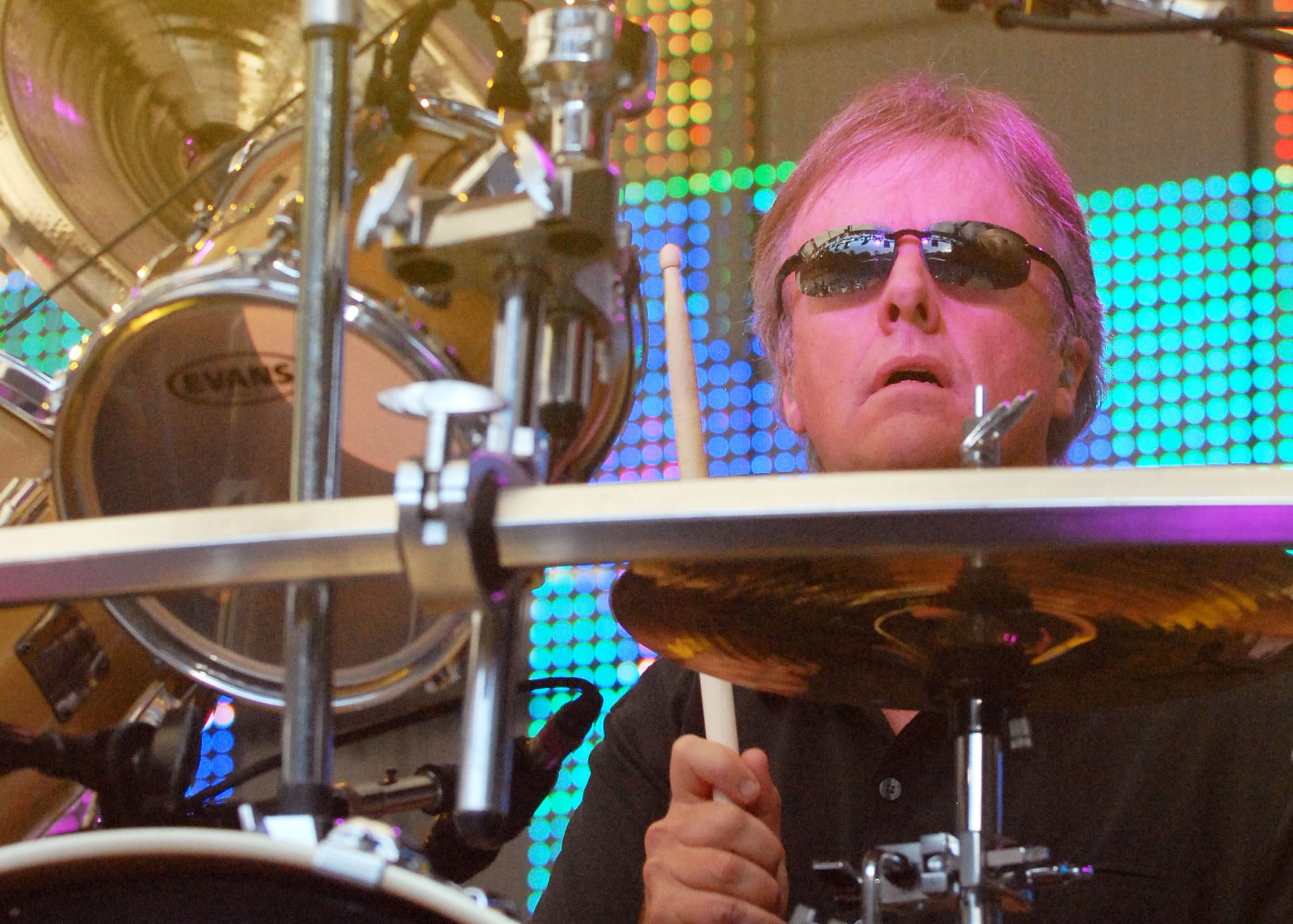
Phil Ehart — drummer, founder and manager of Kansas — told CNBC on Tuesday that the halt in concerts due to the coronavirus has had a chilling effect for the entire live entertainment industry.
“We’re all sitting at home. … There’s zero income,” Ehart said in a “Squawk Box” interview. “We’re stranded.”
Before the pandemic, Kansas, which has been making music since the 1970s, was getting ready to tour the United States around the release of its new album, “The Absence of Presence.”
Then, Ehart said, “We got a call from our agent, he said, ‘Guys, head home. … California’s closing up, Oregon, Las Vegas, everything started to shut down.'”
“It’s very startling at first,” the drummer added. “Then you realize, all our support staff — our lighting, trucking, staging — is at home. It’s starting to take an effect, not having a light at the end of that tunnel.”
While the live entertainment industry includes artists and musicians who have had to cancel tours, the lack of events has also impacted millions of others working behind the scenes.
A concert lit by Bandit Lites.
Michael T. Strickland, chairman and founder of Bandit Lites, is one of those facing hardship. His 45-year-old company provides lighting for stage shows.
“Unlike some of the other struggling businesses, we sit at a moment where we can do absolutely nothing,” said Strickland, who appeared with Ehart on CNBC. “You’ve got 10 million people that literally are making no income.”
According to an industry survey conducted in April, shortly after state lockdowns were starting to take full effect, over 76% of entertainment technology business owners said they’d lost all of their cash flow, with about 96% of them having to cut staff.
“The live event industry as a whole went to zero income on March 13,” Strickland said. “It’s been five months since the virus hit, and it will be another five months until we can get open, if we can get open then.”
“Speaking for Kansas,” Ehart added, “we’re already moving our dates from 2020 to 2021. The other day we started to move our dates into 2022. It’s not looking any better.”
Ehart also noted that even when things do restart, the effects happening now may be felt for years to come.
“Think about your favorite theaters, your favorite performing art centers,” he said. “If they don’t have concerts for a year or two, they’re not going to survive. … Those theaters will be bought, probably torn down, and when we all come out of this, they won’t be there.”
That’s why people like Ehart and Strickland are calling on Congress to introduce more support for small businesses, especially those in live entertainment.
Strickland has been speaking with GOP senators from Tennessee Lamar Alexander and Marsha Blackburn since March when Capitol Hill passed and President Donald Trump signed the $2.2 trillion CARES Act, which created the federal Paycheck Protection Program to give companies forgivable loans to keep paying employees during the coronavirus crisis.
“What Congress did for us back in April with the PPP was phenomenal,” Strickland said. “That was sort of a bridge loan, when we all thought this would be over in 30 to 60 days. Now we’ve moved beyond that, and everyone’s out of money within the small business community.”
Strickland is part of the initiative #RedAlertRESTART, which aims to call attention to the crisis faced by small businesses in the industry. On Sept. 1, about 2,000 buildings and areas across North America will be lit up red, including the Empire State Building in New York City, the Hollywood Bowl in California, and even Niagara Falls at the U.S.-Canadian border. Earlier this month, there was a similar call to action across the U.K.
#RedAlert UK lights up the Thames River.
Strickland emphasized the immediacy of the crisis. “Not only will venues cease to exist, we’re already losing companies,” he said. “More importantly, we’re losing people out of this market sector, going into other market sectors. That’s why it’s so important that the enhanced unemployment be extended.”
While it may be too soon to tell when exactly live events will return, Strickland told CNBC that he’s confident that people will want to attend events in person, rather than virtually, and concerts will come back.
Ehart feels similarly. “You want to believe that someday we’ll come out of this and there will be concerts again, there will be sports, ballet,” the Kansas founder said. “I like to stay positive.”




